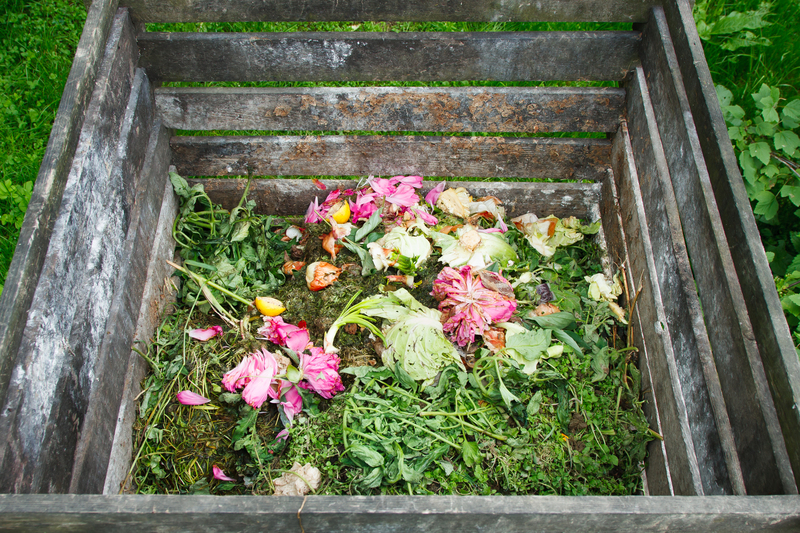Keep Your Budget in Check When Handling Bulky Waste Items
Managing bulky waste items efficiently is a common challenge for homeowners, tenants, and even businesses. From old furniture and mattresses to obsolete appliances and renovation debris, these large waste items can quickly become a physical and financial burden if not handled strategically. This in-depth guide will provide you with practical advice and budget-friendly methods for disposing of bulk waste without breaking the bank.
Understanding Bulky Waste: What Qualifies?
Before jumping into how to manage bulky rubbish in a cost-effective way, it's important to clarify what counts as bulky waste. Generally, the term refers to waste that is too large to be collected by regular garbage pickups. Common examples include:
- Old sofas and armchairs
- Mattresses and bed frames
- Large appliances (e.g., refrigerators, washers, stoves)
- Broken tables, desks, and shelving units
- Renovation debris (doors, carpets, plumbing fixtures)
- Outdoor equipment (barbecues, lawn mowers, playsets)
While local regulations may differ, knowing what counts as bulk junk is the first step to a streamlined process and keeping your budget in check with bulky waste removal.

Common Disposal Options: Weighing Cost and Convenience
There are several approaches you can take when disposing of large waste items. Each method comes with its own advantages, limitations, and cost implications. Choosing the right one can help you manage bulky trash affordably and efficiently.
1. Municipal Bulk Item Pickup Programs
Many municipalities offer periodic
- Schedule a pickup in advance
- Comply with size, quantity, and item-type limitations
- Be available on the appointed day to place items curbside
Check with your local council or waste authority for specifics on available services. While this is often the cheapest option, it offers less flexibility in timing and item variety.
2. Private Junk Removal Services
If municipal options are unavailable or inconvenient, hiring a professional rubbish removal company can be a fast solution. Pricing usually depends on the volume and type of waste, accessibility, and distance from the disposal site. To keep your budget in check when disposing of bulky refuse through junk haulers:
- Request written quotes from multiple providers
- Ask about discounts for combined loads or multiple items
- Clarify potential extra charges (stairs, long carry, etc.)
- Consider grouping waste with neighbors for shared service fees
While private junk removal is convenient, it may not be the most budget-friendly waste clearance option for everyone.
3. DIY Drop-Off at Recycling or Landfill Centers
For those with access to a suitable vehicle, personally dropping off bulk waste at approved disposal facilities can offer savings--especially for larger loads. Many landfill and recycling centers accept specific bulky items for a small fee. Here's how to maximize your savings:
- Sort items and dismantle large pieces to save space
- Check for free days or resident discounts at local centers
- Combine trips with neighbors or friends
- Seek out separate programs for appliances or electronics
Transporting waste yourself requires time and effort but helps control disposal costs.
4. Renting a Dumpster or Skip
For renovation projects or major clearouts, a temporary dumpster (skip) rental can be a practical solution. The company will drop off and collect the container for you, and you fill it at your convenience. A few smart steps to keep costs manageable:
- Choose the right size to avoid overfilling or underutilizing
- Compare quotes from several rental companies
- Understand weight limits and avoid prohibited items
- Ask about base rates vs. extra fees for tonnage or days
This method offers flexibility and bulk capacity, but costs can add up quickly if not planned carefully.
Tips for Reducing the Cost of Bulky Waste Disposal
No matter the method, smart planning and a few savvy strategies can help you keep your budget in check when handling large waste items. Consider these tips to save money:
1. Sell or Donate Usable Items
Before sending your items to landfill, consider their potential for reuse. Many organizations and online platforms welcome gently used furniture and appliances. You can:
- List items on local classifieds (e.g., Craigslist, Facebook Marketplace)
- Contact local charities, shelters, or thrift stores
- Host a garage sale or giveaway event
Rehoming items can save on removal costs and may even put a little back in your pocket.
2. Dismantle to Save Space
Reducing the physical size of your bulky waste by breaking down furniture and appliances can help fit more into a dumpster, trailer, or pickup service. This often translates to lower fees and easier handling.
3. Share Disposal Costs
If you live in an apartment complex or neighborhood with coordinated waste needs, banding together for a shared junk removal service can significantly decrease per-person expenses. Some companies even offer discounted group rates.
4. Leverage Free Community Events
Keep an eye out for occasional special collection events organized by cities or environmental groups, such as:
- Bulk waste amnesty days
- Electronics or appliance recycling drives
- Neighborhood cleanup weekends
Attendance is often free or low-cost for residents and can be a smart way to dispose of large items without added expenses.
5. Plan Ahead for Major Projects
Remodeling, landscaping, or moving generates unexpected volumes of junk. Pre-budget for bulk waste removal and book in advance for better rates. Last-minute services, especially for skips and removals, often cost more.
Hidden Costs to Watch Out For
Even the most budget-conscious approach to bulky waste can encounter surprise expenses. Mitigate these risks by keeping an eye on:
- Permit requirements: Some municipalities require a permit to leave items curbside or place a skip on the street.
- Special handling fees: Refrigerators and electronics may incur additional pricing due to hazardous components.
- Overweight charges: Dumpsters and landfill sites have strict weight limits.
- Travel surcharges: Remote or hard-to-access locations may be billed extra by private haulers.
- Fines for improper disposal: Avoid illegal dumping at all costs, as fines far outweigh legitimate disposal fees.
Eco-Friendly Bulk Waste Solutions That Save Money
Opting for sustainable disposal can keep your budget in check while benefiting the environment. Many bulky waste items contain reusable materials and components. Consider:
- Scrap yards: Metal bed frames, appliances, and grills may fetch a small return at local scrap dealers.
- Community recycling centers: Some accept mattresses, electronics, and furniture, especially if you dismantle them first.
- Upcycling projects: Creative DIYers can turn old doors into tables, or repurpose wood from broken furniture.
Not only can you reduce landfill waste, but repurposing and recycling can sometimes offset your bulky item disposal expenses.
Frequently Asked Questions
What is the cheapest way to get rid of bulk waste?
The most budget-friendly approach is usually using your local government's bulk collection service or self-hauling to a community disposal center. Always compare local options and verify if certain items can be recycled for free.
What items are prohibited from bulk waste collection?
Generally, hazardous materials (like paint, batteries, and chemicals), tires, and certain electronics are excluded from standard bulk collection. Appliances with coolant gases, such as refrigerators, may require special disposal arrangements.
How do I minimize the cost of a dumpster rental?
Estimate your waste volume accurately, select the smallest size you need, and avoid overfilling. Share dumpsters with neighbors or plan multiple projects at once to maximize use. Always ask about all potential fees beforehand.
Are there resources for seniors or disabled residents?
Many municipalities offer discounted or assisted waste removal services for qualifying residents. Contact your local council or social services office for information.

Your Bulky Waste, Your Budget -- Make Smart Choices
Keeping your budget under control when dealing with bulky waste items requires planning, awareness, and a little creativity. By understanding your options and using strategies like recycling, selling, and community collaboration, you can:
- Limit costly waste removal fees
- Reduce your environmental impact
- Free up valuable space efficiently
Whether you're embarking on a spring clean, home renovation, or just replacing furniture, careful management of large waste items will keep your project affordable and eco-friendly. Explore all your local disposal and recycling resources, and rest assured that keeping your budget in check is within reach--no matter how much junk you have!
Conclusion
Dealing with bulky waste doesn't have to empty your wallet. With a smart combination of reuse, recycling, community resources, and advance planning, you can find a practical, economical, and sustainable way to clear out unwanted items. Always take time to research your local options, understand permissible materials, and stay ahead of hidden fees. In the end, responsible bulky waste disposal is good for your home, your budget, and the environment.
